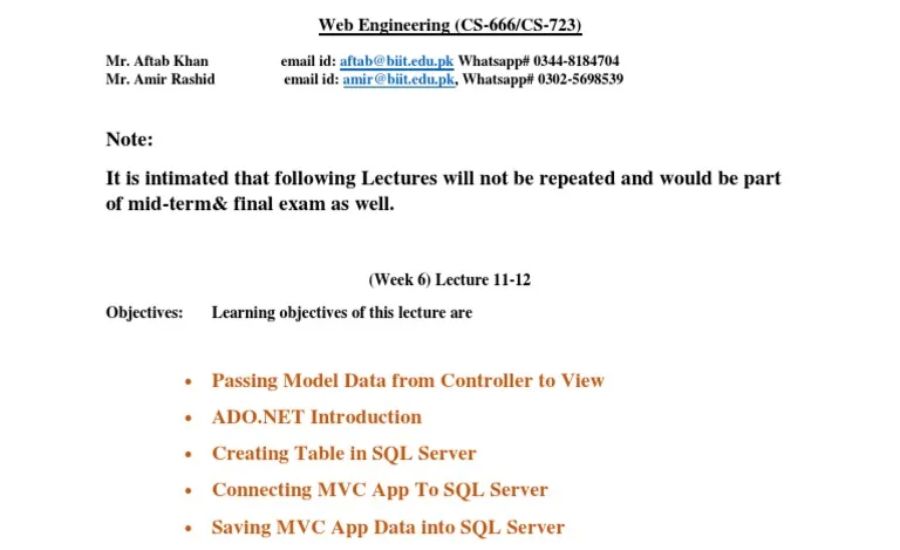http://localhost:44336.assessments/page1.doc, Understanding Application & More
Introduction
For web developers, having a solid grasp of the technical nuances of a local server environment is vital to creating successful web applications. A local server, such as one accessible via a URL like http://localhost:44336/assessments/page1.doc, serves as a crucial tool in the development process. It provides a controlled space for developers to build, test, and debug their applications before they are publicly accessible.
Local servers function as a sandbox environment where developers can experiment with various features and functionalities without the risk of impacting live sites. This isolation allows for thorough testing of applications, ensuring that all components perform as intended. By working with local addresses, developers can address potential issues early on, significantly reducing the likelihood of problems arising in a production environment.
Understanding the primary uses of local servers is essential. They are often employed for tasks such as running automated tests, evaluating new features, or identifying and resolving bugs that may surface during development. This hands-on approach enables developers to fine-tune their applications and optimize performance, leading to a more polished final product.
However, navigating a local server environment is not without its challenges. Developers may face various hurdles, including configuration errors or connectivity problems, which can disrupt their workflow. Being aware of these potential pitfalls and understanding how to troubleshoot them is crucial for maintaining efficiency during the development process.
By mastering the intricacies of local server environments, developers can significantly enhance their overall web development practices. Optimizing the use of local servers streamlines the workflow, allowing for quicker iterations and more robust applications. This not only improves the development experience but also contributes to producing high-quality web applications that fulfill user expectations.
In conclusion, the importance of understanding local server environments cannot be overstated. They play a pivotal role in the development lifecycle, enabling developers to create reliable and efficient web applications. By leveraging local servers effectively, developers can enhance their skills, streamline their processes, and ultimately deliver exceptional digital experiences. Investing time in mastering these technical aspects will yield significant benefits in both the short and long term.
Understanding the http://localhost:44336.assessments/page1.doc

“Localhost” is a fundamental term in web development, designating the default hostname of a computer where developers can set up and test their servers. This capability allows for the simulation of web applications in a secure, controlled setting before they are made available to the public. For instance, a URL like http://localhost/assessments/page1.doc points directly to a document that is likely part of a testing or evaluation process.
Grasping how localhost operates is crucial for developers, as it enables them to execute applications locally. This setup facilitates quick feedback and efficient troubleshooting, ensuring that the live sites remain unaffected during the testing phase. Such practices are essential for refining features, identifying bugs, and verifying that all application components function seamlessly together.
Incorporating structured testing elements, like assessments, into development not only clarifies the focus on functionality but also enhances user experience. By effectively managing these local resources, developers can optimize their applications for performance. Ultimately, mastering localhost and its pathways can significantly improve the development workflow, leading to the creation of high-quality web applications that are well-prepared for user interaction.
http://localhost:44336.assessments/page1.doc: Content Overview
While the specific content of the document hosted on a local server is not publicly accessible, it likely includes vital materials related to assessments. These could consist of various evaluation instruments such as tests, quizzes, and detailed forms designed to assess a range of skills and competencies.
In both professional and educational settings, assessment documents play a crucial role by offering insights into an individual’s knowledge and abilities in specific areas. By utilizing these resources, educators and developers can effectively track progress, identify areas needing improvement, and highlight strengths.
Integrating well-structured assessments is key to fostering effective learning and development. Formative assessments help guide instructional methods, while summative evaluations measure overall performance. The feedback obtained from these assessments is invaluable, as it informs future teaching strategies and skill development plans, ensuring that both individuals and teams can meet their goals.
Ultimately, although the precise details of the document remain confidential, its function as an assessment tool emphasizes the significance of evaluation in educational systems and professional growth. Effectively leveraging these materials can greatly enhance development and competency achievement.
http://localhost:44336.assessments/page1.doc: Utility and Application

Assessment documents serve a crucial purpose in both educational and training environments. These resources are crucial for administrators, trainers, and educators to assess staff and student capabilities, knowledge, and abilities. They can determine strengths and shortcomings through methodical evaluations, enabling focused development and support.
In professional settings, assessment tools are equally important for conducting performance evaluations. They not only recognize individual achievements but also inform critical decisions regarding promotions, salary increases, and opportunities for career advancement. By implementing structured assessments, organizations can align their teams with broader objectives, ultimately driving success and productivity.
Furthermore, utilizing assessment documents promotes a culture of continuous improvement.These assessments enable people to improve their abilities and adjust to changing industry expectations by providing helpful criticism. Both organizations and educational institutions can increase their effectiveness while upholding high performance standards thanks to this growth-focused approach.
In summary, assessment documents are more than just evaluation tools; they are vital instruments for fostering personal and professional development, ensuring accountability, and guiding individuals toward success in both educational and career pathways.
Common Errors on Localhost:44336
During local development, encountering errors is a typical part of the process for developers. Familiarity with these common issues can streamline troubleshooting efforts. Here are some frequent errors that might occur while accessing a local document, such as http://localhost:44336/assessments/page1.doc:
Connection Refused: This error usually indicates that there is no active server running on the specified port, or firewall settings may be preventing access. Ensuring that the server is properly configured and running is essential.
404Not Found: This error message shows that the requested document (in this case, page1.doc) is not present in the specified directory. The file may have been relocated or erased, or the URL may have been typed improperly.
500 Internal Server Error: This error signifies an issue with server-side script execution. It can stem from various factors, including coding errors, misconfigurations, or resource constraints.
Recognizing these common errors is crucial for effective debugging during the development phase. By identifying the root causes of these problems, developers can implement the necessary changes to ensure their local environments run smoothly. This proactive approach not only enhances the debugging process but also contributes to the overall quality of the web applications being developed.
Troubleshooting Methods
Checking Server Status
To maximize the functionality of your local server at localhost:44336, it’s essential to ensure that it is operating correctly. Various development tools and command-line interfaces on your system can help monitor server status. For instance, built-in utilities provide real-time insights into server performance, while command-line tools like netstat allow you to verify if the server is actively listening on the designated port.
Verifying File Path and Availability
Equally important is confirming the accurate location of page1.doc within your local server’s directory. Proper file organization is critical for smooth development workflows. Begin by navigating to the relevant folder in your server’s file structure to ensure that page1.doc is present and hasn’t been inadvertently moved or deleted. This diligence helps avoid common issues like 404 errors, which signal that a requested document cannot be found.
Addressing Common Challenges

Developing on a local server like localhost:44336 can present various challenges, including port conflicts, compatibility issues between software versions, and configuration errors. To navigate these obstacles effectively, implementing systematic debugging practices is crucial. This includes monitoring error messages closely, utilizing logging tools, and testing changes incrementally to pinpoint issues.
Keeping all software components updated is equally vital, as outdated versions can lead to compatibility problems that impede development. Furthermore, fostering collaboration among team members can significantly reduce conflicts. Ensuring everyone is aligned on server setups, configurations, and dependencies can be achieved through consistent documentation and open communication.
By adopting these proactive strategies, developers can enhance their local development experience, improving efficiency and promoting a robust application development process. Ultimately, staying organized and informed empowers teams to tackle challenges effectively and create high-quality web applications.
Adapting to Evolving Educational and Professional Standards
The landscape of education and professional development is in a state of continual evolution, driven by emerging skills and knowledge that align with current industry demands. To remain effective and relevant, resources stored on platforms like http://localhost:44336/assessments/page1.doc must be regularly refreshed. This updating process transcends simple content revisions; it also necessitates the incorporation of innovative assessment methods and cutting-edge technologies.
Adopting contemporary assessment strategies provides valuable insights into learner performance and educational outcomes.For example, by using data analytics, trainers and educators can more accurately assess students’ development and make individualized modifications to their teaching strategies. Furthermore, by providing instant feedback that facilitates learning, interactive technologies—like online tests and simulation exercises—can greatly increase learner engagement.
Training programs and educational institutions can establish more dynamic and productive learning environments by adopting these innovations. In addition to encouraging personal development, this proactive strategy gives students the tools they need to succeed in a constantly shifting workplace. In the end, staying ahead of these changes guarantees that educational programs continue to have an impact and be in line with the requirements of modern students.
FAQs about Local Server Environments
1. What is a local server?
A local server is a web server that runs on your computer, allowing you to test and develop websites before making them live. It creates a controlled environment where you can build, run, and debug applications without affecting public sites.
2. Why is it important for developers to use a local server?
Using a local server is crucial for developers as it provides a safe space to test features, troubleshoot issues, and ensure applications function correctly. It allows for experimentation without the risk of impacting a live site.
3. What common errors might I encounter when using a local server?
Common errors include:
- Connection Refused: Indicates that no server is running on the specified port.
- 404 Not Found: Suggests that the requested file is missing or the URL is incorrect.
- 500 Internal Server Error: Points to a problem with the server-side script execution, often due to coding errors.
4. How can I troubleshoot issues on my local server?
To troubleshoot issues, you can:
- Check if the server is running and properly configured.
- Verify the file path to ensure that the requested documents are in the correct location.
- Monitor error messages and logs to identify specific problems.
5. How does using a local server benefit educational assessments?
Local servers allow educators to test and implement assessment tools effectively in a controlled environment. They help track student progress and refine teaching methods based on data-driven insights.
6. What role do assessment documents play in education?
Assessment documents are vital for evaluating students’ knowledge and skills. They help educators identify areas for improvement, track progress, and tailor instruction to meet individual needs.
7. How often should I update resources stored on a local server?
Resources should be updated regularly to incorporate the latest features, assessment methods, and technologies, ensuring they remain relevant and effective for learning and development.
8. Can local servers be used for team collaboration?
Yes, local servers can facilitate collaboration among team members by allowing them to work on the same project, test features, and provide feedback in real time. Proper documentation and communication are key to successful teamwork.
Final Words on Local Server Environments
Understanding local server environments is essential for web developers. A local server, like the one accessible via a URL such as http://localhost:44336/assessments/page1.doc, provides a safe and controlled space for building, testing, and debugging applications before they go live. This sandbox environment allows for thorough testing of features and functionalities, helping developers catch potential issues early on.
Local servers are particularly valuable for running automated tests, evaluating new features, and identifying bugs. However, developers may face challenges like configuration errors or connectivity issues, so being aware of these pitfalls and knowing how to troubleshoot them is crucial for an efficient workflow.
Moreover, assessment documents stored on local servers play a vital role in educational and professional settings by evaluating knowledge and skills. Regularly updating these resources ensures they remain relevant and effective, aligning with evolving industry standards.
In summary, mastering local server environments not only streamlines the development process but also enhances the quality of web applications. By investing time in understanding and optimizing local server use, developers can significantly improve their work, ultimately leading to better digital experiences for users.
For more Information About blog visit francherway





